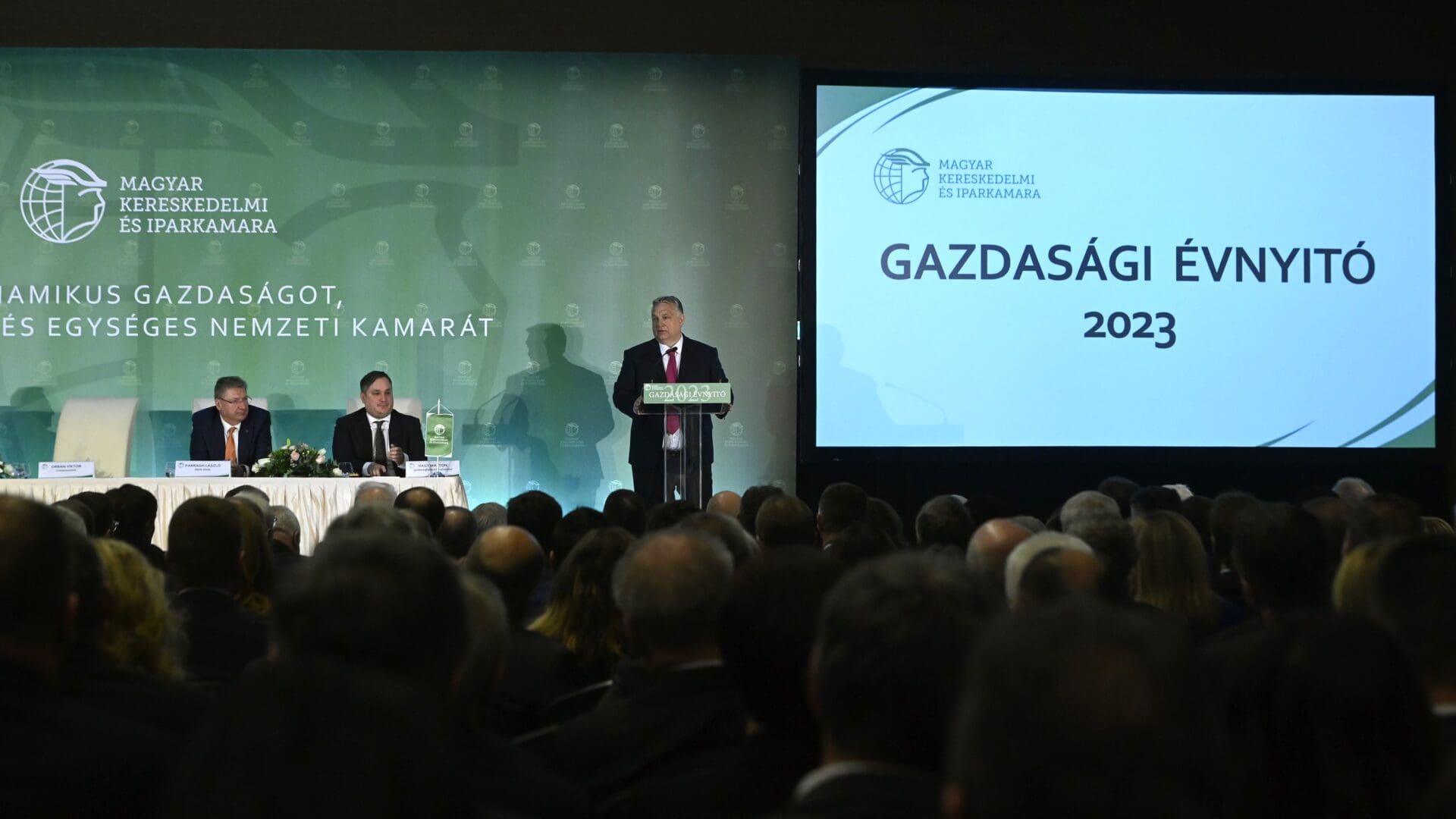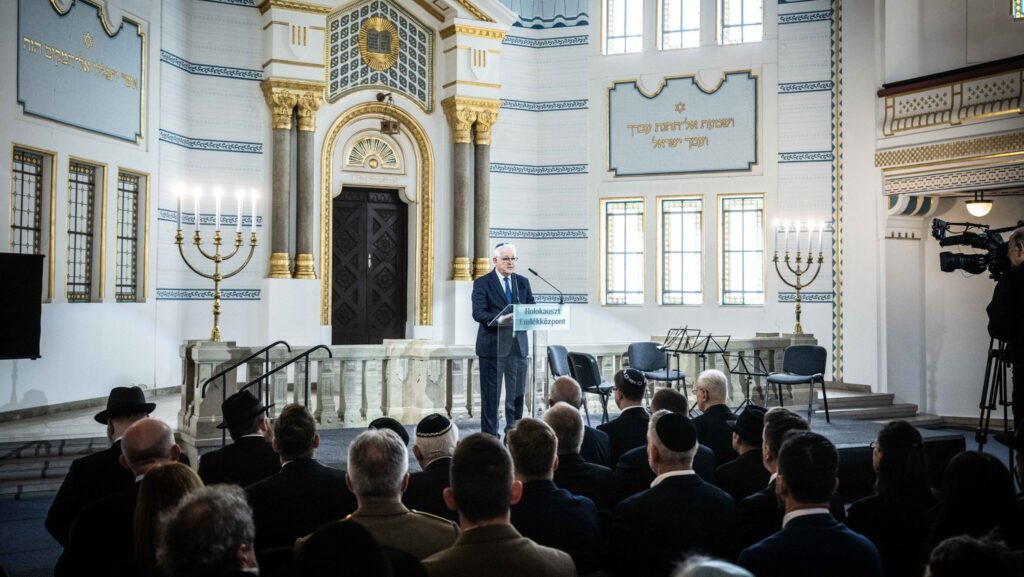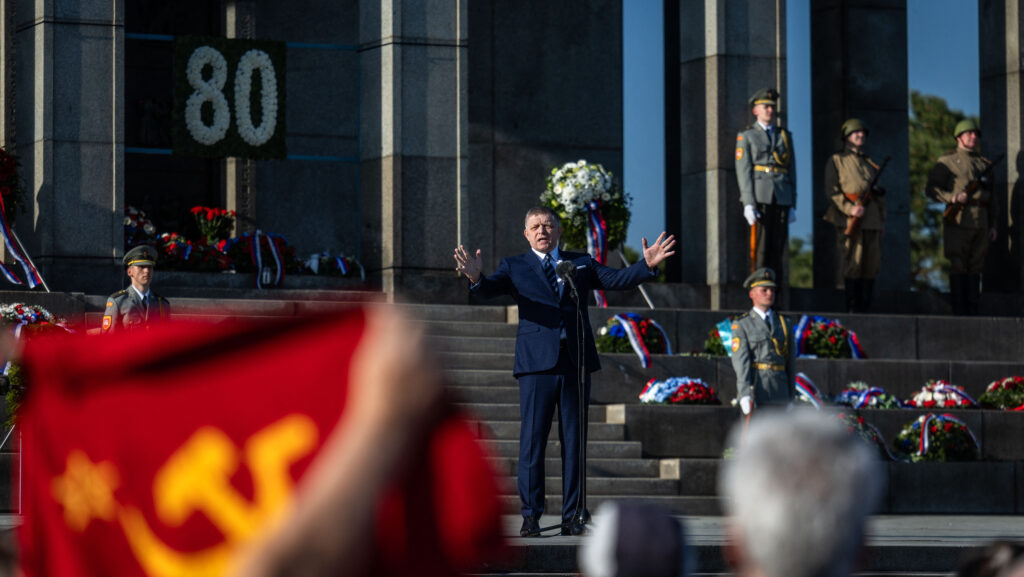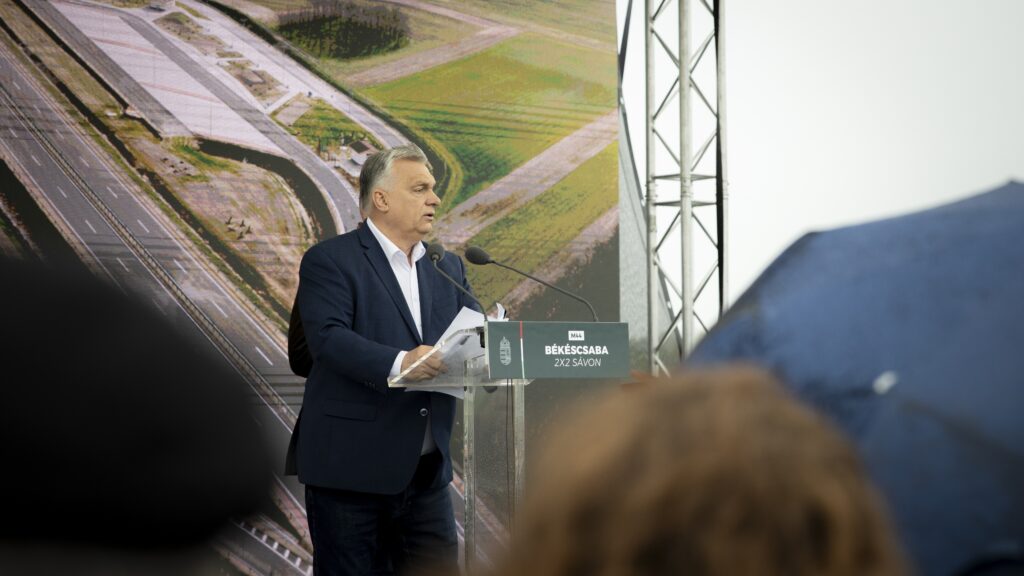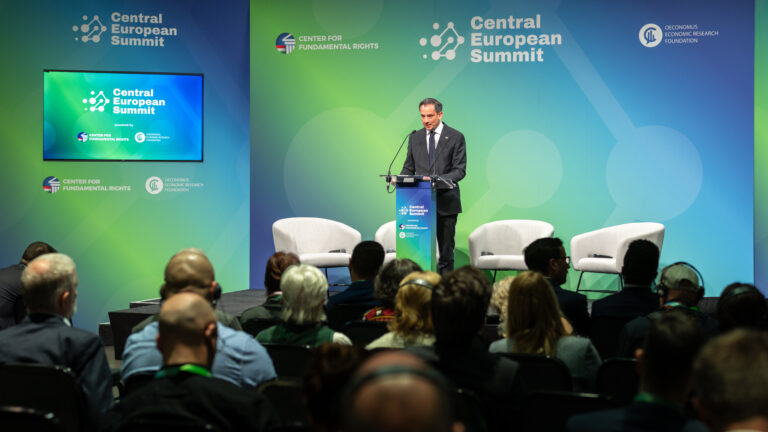The Hungarian Prime Minister said that in the wake of the war in Ukraine, Europe’s geopolitical map is being redrawn, with the rise of a previously unseen centre in Central Europe. Mr Orbán argued that Hungarian foreign policy must think hard about what sort of relations it can maintain with Russia over the next 10-15 years.
As Hungarian Conservative reported, Viktor Orbán spoke at an event of the Hungarian Chamber of Commerce and Industry (MKIK) on 9 March. Although the Prime Minister spoke mostly about the international and domestic economic situation, he made a brief detour into foreign policy and shared his views on geopolitical changes in Europe.
The Prime Minister said that the power structure of Europe is currently being reshaped before our eyes. Before the war, the power structure in Europe was such that Russia provided cheap energy and cheap raw materials, and Europe produced advanced modern technology. Politically, the Franco-German axis dominated Europe, with Russia ‘on the other side’. This cooperation between the Western European states and Moscow, the PM said, was the source of Europe’s economic success. The first step was the decoupling of the European economy from the Russian economy, which, given Europe’s energy needs, replaced Russian dependency with another dependency.
The Prime Minister was obviously referring to the United States with that remark.
While Europe has been able to reduce its dependence on Russian energy more quickly than expected, its energy needs have not decreased, thus it needs to rely on imports from other sources. S&P Global notes that in 2021, Russia exported 15 Bcf/d of natural gas to Europe which figure dropped to 3 Bcf/d by the end of 2022. The continent has made up some of the shortfall with LNG mainly from Qatar and the United States over the past year. As oil and gas prices moved up in the wake of the war and sanctions imposed on Russia, share values for US oil and gas producers increased by double-digit percentage points in 2022. S&P also indicates that according to its Oil and Gas Exploration and Production Select Industry Index, a basket of 51 North American oil and gas firms, gained 42 per cent in value in 2022. This, of course, is only the short-term aspect, which shows that Europe’s dependence has partly shifted from Russia to the United States. Weaning itself off Russian fossil fuels could have a positive impact on the continent in the long run, not only contributing to energy sovereignty but also promoting Europe’s green transition. Renewable energy accounted for 22 per cent of the EU’s energy mix last year, overtaking fossil gas, and the bloc’s RePowerEU programme includes further strong targets for wind and solar.
In his speech Mr Orbán also mentioned Ukraine’s aspiration to join the EU and NATO. According to the Hungarian PM, what sounded absurd a year ago—namely Ukraine’s accession to the European Union and NATO—is now being seriously considered. And with it, the geopolitical map of Europe is being redrawn. A new kind of Central European centre is rising that we have not seen on the map before. Because it is clear, argued Mr Orbán, that Poland and Ukraine will form an economic area in military terms, security terms and economic terms, which represents 60–70 million people in terms of population. Together the two countries would have a larger population than France or Italy and would be the second-largest geographical area in Europe after Germany. And a greater involvement in the rebuilding of post-war Ukraine can further enhance the importance of this Central European region, Viktor Orbán said, adding:
‘And if the American attempt to cut off the European economy even from the Chinese economy, to reduce the density of the economy and the density of relations with China, is successful, it will mean an economic ordeal for Germany, indicating that this new Central European, North-Central European region with its otherwise enormous economic potential—including the financial opportunities arising from reconstruction—will approach that of Germany.’
A new concept of security policy is also emerging, Orbán highlighted:
a new security policy zone consisting of Britain, the Scandinavian countries newly admitted to NATO, the Baltic states, Poland, Ukraine and even Romania,
which will certainly bring economic consequences, too. According to the PM, this concept is also underpinned by the fact that the US military force is now being deployed in Poland rather than Germany because of the war in Ukraine, which signals a shift in Washington’s focus on Europe. All this shows that the reconfiguration of power in Europe is taking place in multiple dimensions.
There have been several visible, symbolic signs of the shift in US attention in recent weeks. President Joe Biden arrived in Poland at the end of February, where he expressed the West’s unwavering support for Kyiv in a speech on the one-year anniversary of the Russia–Ukraine war. During his three-day stay in Europe, the US President also made an unannounced visit to Ukraine to meet with President Zelenskyy. Afterwards, he met in Warsaw with the leaders of the countries making up the so-called Bucharest Nine, the eastern flank of NATO, including the President of Hungary, Katalin Novák. By contrast, in early March, German Chancellor Olaf Scholz travelled to Washington for a one-hour working meeting with Joe Biden to discuss the continuation of assistance to Ukraine. A few days later, the President of the European Commission, Ursula von der Leyen, also met Biden in Washington, where they discussed the emerging economic rivalry between the EU and the US.
Of course, these episodes in themselves do not mean that Washington does not consider Berlin, the largest donor to Ukraine in Europe and the second largest in the world after the United States, as a strategic partner. However, the symbolism of these events is quite telling and perhaps supports the Hungarian Prime Minister’s thoughts on an emerging Central Europe.
Speaking about Hungary, PM Orbán said that he agreed with the previous speakers that it is desirable to rebuild economic relations between Russia and Europe, but that he does not see any realistic chance of this happening any time soon. Therefore, in his view, Hungarian foreign policy- and economic policymakers will have to be think hard about the nature of relations Budapest can maintain with Russia in the next ten to fifteen years. Viktor Orbán said that it was in Hungary’s interest to maintain relations with Russia, mainly because of its energy dependence,
but how and to what extent these relations could be maintained is still a question mark.
‘That is an exciting question, and one that we will have to think a lot about and talk a lot about with each other,’ noted Mr Orbán.
This remark of the Hungarian Prime Minister can be seen as unique, as since Russia’s intervention in Ukraine, he has said little about the change in Hungarian–Russian relations and has mostly communicated Hungary’s pro-peace stance in the conflict, which meant, among other things, a refusal to supply arms to Kyiv. For this, and his restrained communication on the war, Viktor Orbán has come under a lot of criticism over the past year, and some experts think that the Hungarian Prime Minister’s recent speech may have been intended to pave the way for a foreign policy shift. The PM’s speech could also have been delivered in preparation for his imminent visit to Kyiv to meet Ukrainian President Volodymyr Zelensky, as announced in the press.
It should be noted, though, that the Prime Minister has also indicated in his remarks that he did not want to make a geopolitical speech and that he had not even thought through his foreign policy-related sentences in a way that is palatable to the public. So it is debatable whether the speech will indeed be followed by a change in foreign policy.
Earlier in his State of the Nation speech on 19 February, Viktor Orbán said that the West was indirectly at war with Russia by providing arms to Ukraine. Mr Orbán said Hungary was alone in the EU and NATO in its pro-peace stance, calling for an immediate ceasefire and peace talks. While Hungary is providing only humanitarian aid to the war-torn country, Europe is ‘drifting into the war like a sleepwalker’ by sending tanks, he noted.
In addition, days later, before the first anniversary of the war in Ukraine, the Prime Minister tweeted: ‘Russia cannot win because the whole Western world was lining up behind Ukraine. At the same time, Russia is a nuclear power and nuclear power cannot be cornered because it could trigger a nuclear war. We need a ceasefire and peace talks. The sooner the better.’ This was one of the first times that the Hungarian Prime Minister openly expressed the opinion that Russia is losing its war against Ukraine.
🇷🇺 cannot win because the entire western world has lined up behind 🇺🇦. At the same time, 🇷🇺 is a nuclear power, and a nuclear power cannot be cornered because they may trigger a nuclear war. We need a ceasefire and peace talks. The sooner the better. #RussiaUkraineWar pic.twitter.com/PU5X5h4kkH
— Orbán Viktor (@PM_ViktorOrban) February 23, 2023

